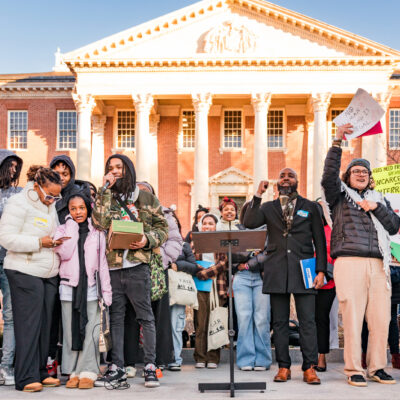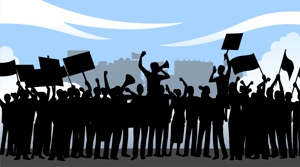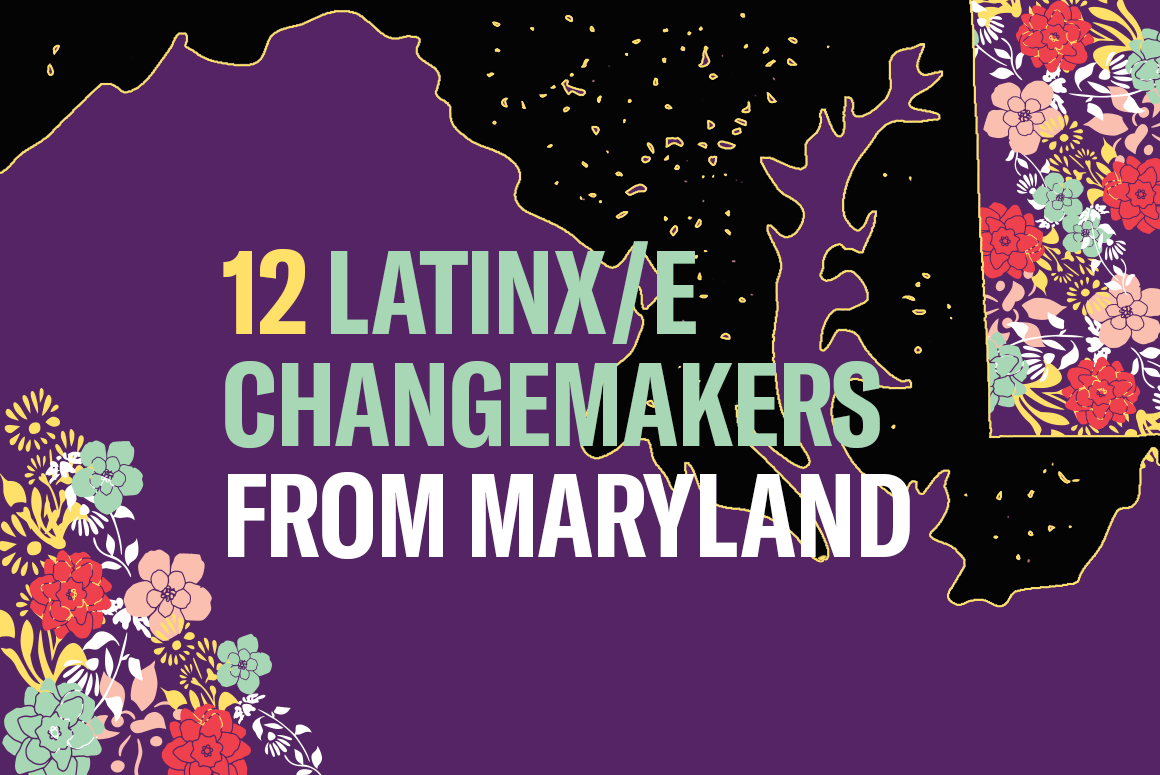News & Commentary
Latest Event
Day of Action 2026: We Keep Us Safe!
We Keep Us Safe! Protect Our Rights!
DAY OF ACTION to protect our immigrant communities and end Maryland's collusion with ICE!
Join the ACLU of Maryland and our partners for a Day of Action on Monday, February 16, in Annapolis. We’ll gather at Lawyer's Mall to demand justice for our immigrant communities and safety for ALL Marylanders. Together, we’ll hold a vigil followed by a rally to amplify our calls for real, meaningful action. Please plan to arrive by 5:00 PM.
Your leadership is crucial here. Be part of the movement to protect civil liberties in Maryland and RSVP today!

24 Hours Can Make All the Difference
Just one 24 hour period in my work this week showed how dangerously misguided Baltimore leaders continue to be in their efforts to reduce violence. They are looking once again to "tough on crime" policies that lock up more Black residents, for longer periods of time.
By Meredith Curtis Goode

It Was a Woman Who Founded The ACLU Of Maryland
This Women's History Month, we remember that it was a woman who founded the ACLU of Maryland: Elisabeth Gilman, daughter of the first president of Johns Hopkins University. In 1921 she formed The Maryland Civil Liberties Committee.
By Meredith Curtis Goode

Baltimore City Cannot Evade Responsibility For The Gun Trace Task Force
When Baltimore City’s chief lawyer Andre Davis reaffirmed several weeks ago that the City would not always agree to pay punitive damages judgments awarded against Baltimore Police Officers who intentionally and flagrantly abuse their authority, many people in Baltimore, including us at the ACLU of Maryland, cheered. The hope was that holding officers personally accountable for paying those (very rare) punitive damages would help deter that kind of egregious misconduct. So when the City announced after the verdict in the Gun Trace Task Force (GTTF) trial that it would not pay any damages awarded against the officers who plead or were found guilty, it is not surprising that some people also saw that as a step forward for individual police accountability. But it isn’t. Instead, it is a transparent attempt to again shift the cost of the BPD’s own repeated and systemic failures onto the people who have been victimized.
By David Rocah

ACLU Welcomes Sergio España, First-Ever Director Of Engagement And Mobilization
After the 2016 election, the ACLU of Maryland realized that we were in for the fight of our lives to protect the civil liberties we hold dear. However, we also received an enormous wave of support. Thousands of Marylanders understood that our rights and liberties were at risk and felt the need to be educated, get involved, and take action.
By Meredith Curtis Goode, Sergio España

Is Jeff Sessions Justice Department Trying to Kill Police Reform in Baltimore?
UPDATE: As this blog post was being sent to press, the court denied the Justice Department's request to delay Thursday's hearing. The court said, "The Government's motion is untimely. To postpone the public hearing at the eleventh hour would be to unduly burden and inconvenience the Court, the other

Rallies, marches and protests happening in DC and Maryland
With the inauguration of Donald Trump as president of the United States, many people are looking for ways to speak out in support of civil rights and liberties.

ACLU Education Reform Project Releases Legislative Priorities for the Maryland General Assembly of 2017
Ensure Full and Adequate Funding of Public Education – The ACLU of Maryland’s (ACLU-MD) Education Reform Project will fight to protect education funding and strengthen the education funding formula.
By Bebe Verdery, Frank Patinella, Kimberly Humphrey, Esq., Justin Nalley

Baltimore Police Secretly Running Aerial Mass-Surveillance Eye in the Sky
Bloomberg Businessweek reported late Tuesday that the Baltimore police have been subjecting that city to a vast and powerful aerial surveillance system since January, without telling, let alone asking, the public that they serve. This is a big deal.

Stay Informed
Sign up to be the first to hear about how to take action.
By completing this form, I agree to receive occasional emails per the terms of the ACLU’s privacy statement.
By completing this form, I agree to receive occasional emails per the terms of the ACLU’s privacy statement.


